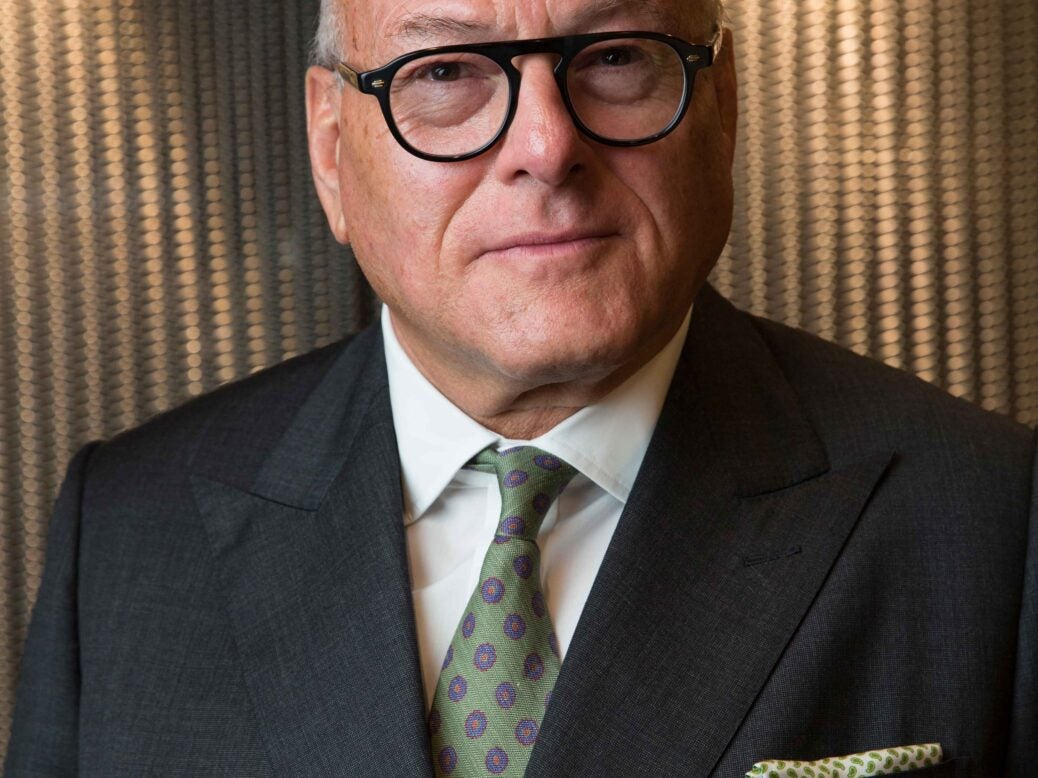
Whilst wealth creation is fundamentally important, philanthropy is also an obligation and a privilege, writes Sir Lloyd Dorfman in his exclusive introduction to the Spear’s 500 2020
I am delighted to write this foreword for The Spear’s 500 – widely regarded as the pre-eminent publication of the wealth management sector. This publication serves as an extremely useful directory of a range of advisers to Family Offices and entrepreneurs. Over the years, as I built up my original business, Travelex, and have embarked on many other entrepreneurial adventures, I have come to appreciate the value of high-quality professional advice.
Building a business involves putting together a team of advisers to support founders through its development. At their best, professional advisers, whether a lawyer, accountant or strategist, can be enablers of wealth creation. One of the hallmarks of our age is dissatisfaction with capitalism. We have seen it expressed in different forms. It is incredible to think that 30 years after the fall of the Berlin Wall, the importance of the market economy needs restating and the case for capitalism needs remaking. I still believe in capitalism as the most effective way to generate prosperity for all.
Of course, we cannot be wholly reliant on the market. We still need government and the charity sector to look after those less fortunate. Entrepreneurship is a key engine of the economy. Around 600,000 businesses are created every year in the UK. What I think sets entrepreneurs apart is their willingness to try to create something from nothing and to build a business. Of course, there are likely to be many difficulties and obstacles along the way. I always say that the evolution of a business is not a straight line from bottom left to top right. It is much more of a zig-zag.
My experience with Travelex is a case in point. There were many hurdles and challenges along the way but eventually, through a combination of hard work and seizing opportunities, it grew from its origins as a small shop in London to become the world’s largest retail foreign exchange business. Nowadays, I meet many young entrepreneurs from all sorts of backgrounds, and give talks to a number of groups.
I tell them about four recurring themes arising from my experience as an entrepreneur.
The first is persistence and to keep going in the face of adversity. Secondly, stick to who and what you know and don’t deviate too far away from your core strengths. Thirdly, think differently – ‘conventional thinking will only ever produce conventional results.’ And, finally, the importance of self-belief, especially in difficult or daunting times.Just as I am an advocate for entrepreneurship, I believe that we all have a social responsibility, particularly if you have been fortunate enough to have made money, at whatever level.
I have been involved with many charities over several decades, and from five different perspectives: as a donor, a fund-raiser, a sponsor, a trustee and as a chairman. I currently sit on the board of seven charities, including chairing Prince’s Trust International, being deputy chairman of Community Security Trust and serving as a trustee of the Royal Opera House and Bafta.
As well as time, our family foundation has also given significant sums to different charities. Socially responsible entrepreneurs, who create wealth and then give some of it away, make an important contribution to society.
Whilst the UK is a generous nation, we need to encourage more of our high-end entrepreneurs to be active philanthropists. The organisation Beacon Collaborative estimates that, of the 18,000 UHNWs in the UK, only about 10 per cent give philanthropically. That is a proportion that requires significant improvement.
We should remember the words of Albert Einstein, who said ‘it is every man’s obligation to put back into the world at least the equivalent of what he takes out of it.’ My philosophy, therefore, is that whilst wealth creation is fundamentally important, philanthropy is also an obligation and a privilege.
Exceptional advisers, as listed in this publication, can play a pivotal role in helping HNWs become more effective in both their entrepreneurship and philanthropy, and thereby in their contribution to society.






